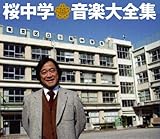The CIA and American Foreign Policy


Professor Paul W. Drake argued that the US first attempted to export democracy in Latin America through intervention from 1912 to 1932. Drake argued that this was contradictory because international law defines intervention as "dictatorial interference in the affairs of another state for the purpose of altering the condition of things." The study suggested that efforts to promote democracy failed because democracy needs to develop out of internal conditions, and can not be forcibly imposed. There was disagreement about what constituted democracy; Drake suggested American leaders sometimes defined democracy in a narrow sense of a nation having elections; Drake suggested a broader understanding was needed. Further, there was disagreement about what constituted a "rebellion"; Drake saw a pattern in which the US State Department disapproved of any type of rebellion, even so-called "revolutions", and in some instances rebellions against dictatorships. Historian Walter LaFeber stated, "The world's leading revolutionary nation (the US) in the eighteenth century became the leading protector of the status quo in the twentieth century." Mesquita and Downs evaluated 35 US interventions from 1945 to 2004 and concluded that in only one case, Colombia, did a "full fledged, stable democracy" develop within ten years following the intervention. Samia Amin Pei argued that nation building in developed countries usually unravelled four to six years after American intervention ended. Pei ...










